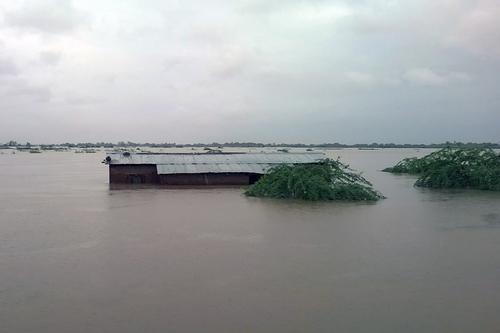Johannesburg/Nsanje, January 16th 2015 – Up to twenty thousand people in the southern tip of Malawi most affected by the current floods remain cut off from the rest of the country without food, health care and ways to prevent possible outbreaks, the humanitarian medical organization Médecins Sans Frontières (MSF) said on Friday.
Humanitarian relief is slowly arriving in the districts of Chikwawa where the waters have started to recede. But some of the most affected areas downstream are only accessible by helicopter, making humanitarian intervention difficult. MSF, which has been responding to the floods since January 9th, is refocusing its intervention around the town of Nsanje, where it has a long standing regular project, and is assessing ways to access the more remote East Bank.
“The floods are behaving like a slow tsunami with the river swelling progressively downstream towards the south and Mozambique,” says Amaury Grégoire, MSF’s head of mission in Malawi, currently in Nsanje evaluating the impact of the floods. “Most of Nsanje and East Bank are submerged under two to three meters of water, which has transformed these vast plains into a giant lake engulfing houses and bridges. Even though these areas are prone to floods, old people I talked to could not remember events of this magnitude.”
As the rains have eased in the past few days, the water levels are expected to progressively come down. However, long term solution need to be found for people whose possessions and crops, which are the primary mean of subsistence for 85% of the population, have been completely destroyed in the flood, says MSF.
“Several camps have been set up for people who lost their homes, but the majority of them have found refuge in the houses of friends or relatives that are still standing. The little mud houses are very crowded, and, with most wells and boreholes contaminated by the floods, people are living in precarious, unsanitary conditions”, says Amaury Grégoire.
MSF has been setting up tents, distributing non food items, mosquito nets and water treatment kits, as well as building latrines to prevent the emergence of water-borne diseases. The organization has had a presence in Malawi since 1986 where it currently runs three projects helping people living with HIV, one of them located in Nsanje. In the recent years, MSF conducted humanitarian interventions after floods affecting the country in 2011, 2012 and 2013.



